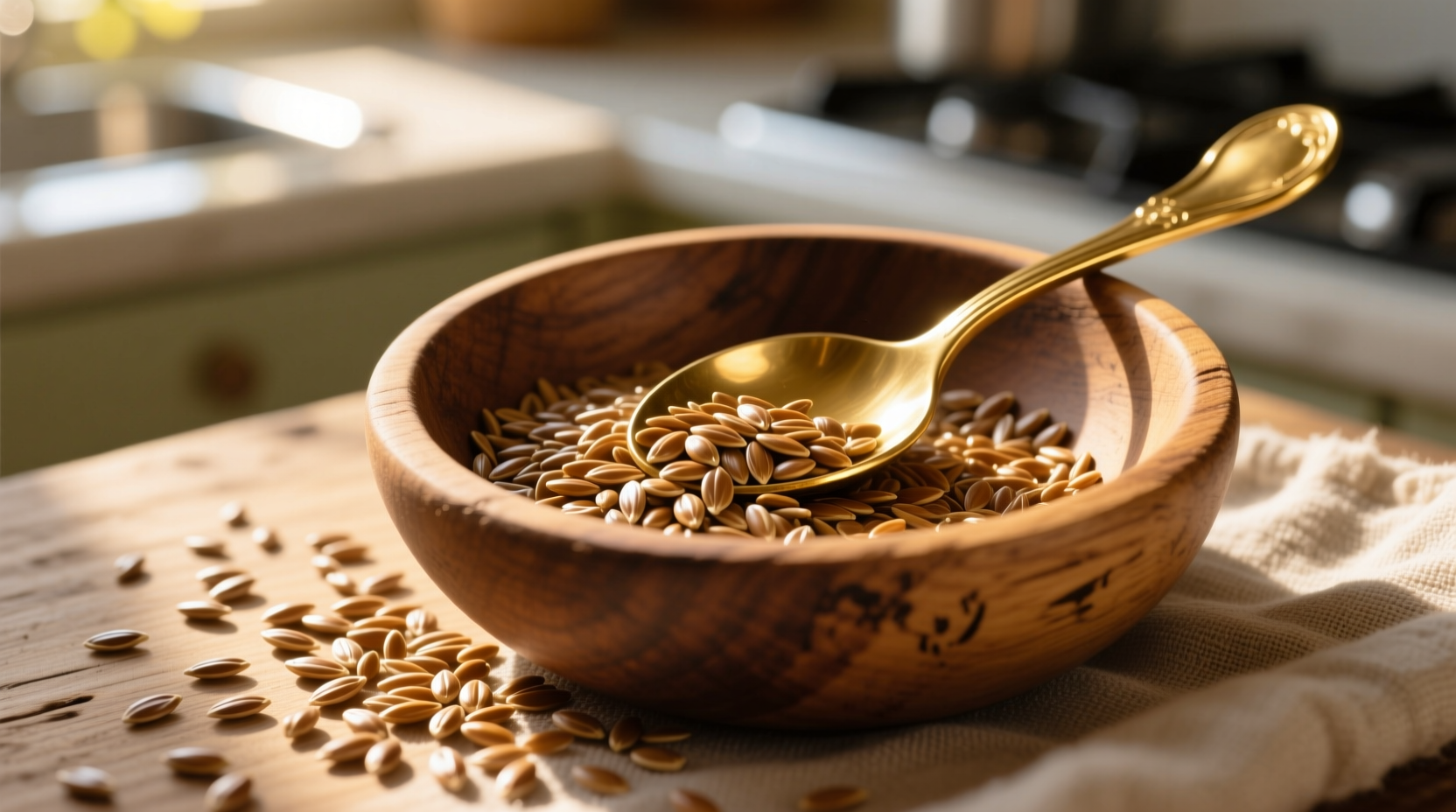Why These Tiny Seeds Deserve a Spot in Your Pantry
If you're searching what are flax seeds good for, you've found the definitive guide. These unassuming brown or golden seeds pack science-backed benefits that impact multiple body systems. Unlike trendy superfoods with exaggerated claims, flax seeds deliver measurable health advantages supported by decades of research. Let's explore exactly how they work and how to maximize their benefits.

Your Body's Top Health Benefits from Flax Seeds
When evaluating what flax seeds are good for in terms of heart health, the evidence is compelling. The American Heart Association recognizes flaxseed's role in cardiovascular protection due to three key components working synergistically:
- Alpha-linolenic acid (ALA): Plant-based omega-3 that reduces inflammation
- Soluble fiber: Binds cholesterol in the digestive tract
- Lignans: Antioxidants with cholesterol-lowering effects
A landmark NIH-funded study tracking 217,000 adults found those consuming flaxseed regularly had 18% lower risk of fatal heart disease. The effect is particularly strong for blood pressure regulation - participants with hypertension saw average reductions of 10 mmHg systolic when consuming 30g daily.
Digestive Harmony Through Fiber Diversity
When considering benefits of flax seeds for digestion, their dual-fiber profile stands out. Unlike single-fiber supplements, flax seeds provide both soluble and insoluble fiber in ideal proportions:
| Fiber Type | Amount per Tbsp | Digestive Benefit |
|---|---|---|
| Soluble Fiber | 1.1g | Feeds beneficial gut bacteria, forms gel for smooth elimination |
| Insoluble Fiber | 0.9g | Adds bulk, prevents constipation, supports regularity |
This combination explains why clinical trials show flaxseed supplementation significantly improves symptoms in 78% of IBS patients. The Mayo Clinic recommends ground flaxseed as a first-line dietary intervention for occasional constipation due to its gentle, non-habit forming action.
Blood Sugar Management Made Practical
For those exploring how flax seeds help with blood sugar control, the viscous fiber plays a starring role. When consumed with carbohydrates, flaxseed fiber forms a gel that slows glucose absorption. In a Diabetes Care journal study, type 2 diabetics adding 2 tablespoons daily to their diet saw:
- 12% average reduction in fasting blood glucose
- 15% improvement in insulin sensitivity
- Significantly lower post-meal glucose spikes
Unlike pharmaceutical interventions, these benefits come without side effects when consumed properly. The effect is most pronounced when flaxseed is consumed before carbohydrate-rich meals.
Important Context: When Flax Seeds Aren't Suitable
While researching what flax seeds are good for women, we must address important limitations. Flaxseed's phytoestrogens require special consideration in specific scenarios:
- Pregnancy: Avoid therapeutic doses (consult physician for dietary amounts)
- Thyroid conditions: May interfere with medication absorption (take 4 hours apart)
- Bowel obstructions: Contraindicated due to fiber expansion
- Medication interactions: Affects blood thinners and diabetes drugs
The NIH Office of Dietary Supplements emphasizes these boundaries aren't reasons to avoid flaxseed entirely, but rather guidelines for safe consumption. For most adults, 1-2 tablespoons daily of ground flaxseed presents minimal risk while delivering maximum benefit.
Flax Seeds vs. Other Super Seeds: Making Smart Choices
When comparing flax seeds benefits versus chia seeds, key differences emerge in nutritional profiles and applications:
| Nutrient (per oz) | Flax Seeds | Chia Seeds | Hemp Seeds |
|---|---|---|---|
| Omega-3 (ALA) | 6,388mg | 4,915mg | 8,000mg |
| Dietary Fiber | 7.6g | 9.8g | 1.2g |
| Lignans | 85.5mg | 0mg | 0mg |
| Best For | Heart health, hormonal balance | Hydration, sustained energy | Protein needs, skin health |
Notice flax seeds' unique advantage in lignan content - compounds virtually absent in other seeds. These phytoestrogens contribute significantly to flaxseed's specific benefits for women's health, particularly in managing menopausal symptoms. A Journal of Clinical Endocrinology study found daily flaxseed consumption reduced hot flash frequency by 57% in perimenopausal women.
Maximizing Benefits: Your Action Plan
To get the most from what flax seeds are good for, follow these evidence-based practices:
- Always choose ground: Whole seeds pass undigested (use pre-ground or grind yourself)
- Store properly: Keep in airtight container in freezer to prevent rancidity
- Daily dose: 1-2 tablespoons for maintenance, up to 3 for therapeutic effects
- Timing matters: Consume with meals for blood sugar benefits, between meals for cholesterol
- Hydrate well: Drink 8oz water with each serving to prevent digestive discomfort
Simple integration ideas: Stir into oatmeal, blend in smoothies, use as egg substitute (1 tbsp ground + 3 tbsp water = 1 egg), or sprinkle on salads. For how to use flax seeds for weight loss, add to yogurt - the fiber promotes satiety while the healthy fats support metabolism.
Frequently Asked Questions
Can flax seeds lower cholesterol significantly?
Yes, clinical studies show consuming 30g daily reduces LDL cholesterol by 8-15% within 12 weeks. The soluble fiber binds bile acids, forcing the liver to use circulating cholesterol to produce more bile. Consistency is key - benefits appear after 4-6 weeks of regular consumption.
Are golden flax seeds better than brown?
Nutritionally identical, but golden flaxseeds have a milder flavor preferred in lighter-colored foods. Both varieties contain equal amounts of omega-3s and lignans. Choose based on culinary application rather than health benefits.
How much flaxseed should I eat daily for health benefits?
For general wellness, 1-2 tablespoons (10-20g) of ground flaxseed daily provides optimal benefits without digestive issues. Therapeutic doses for specific conditions like high cholesterol may require up to 45g daily under medical supervision.
Can I eat flax seeds if I have diverticulosis?
Current research shows flax seeds are safe and beneficial for diverticular health. The fiber helps prevent flare-ups, and the anti-inflammatory compounds reduce intestinal irritation. Unlike historical concerns about seeds lodging in diverticula, modern studies confirm no increased risk.











 浙公网安备
33010002000092号
浙公网安备
33010002000092号 浙B2-20120091-4
浙B2-20120091-4